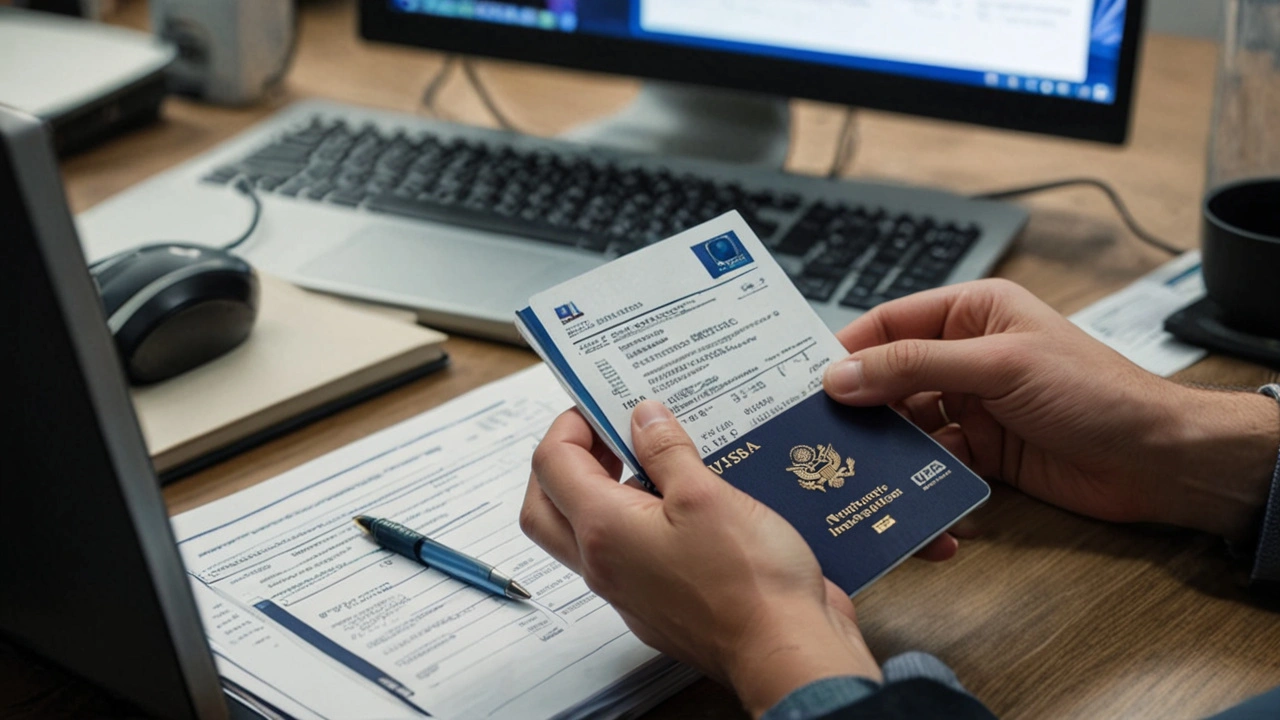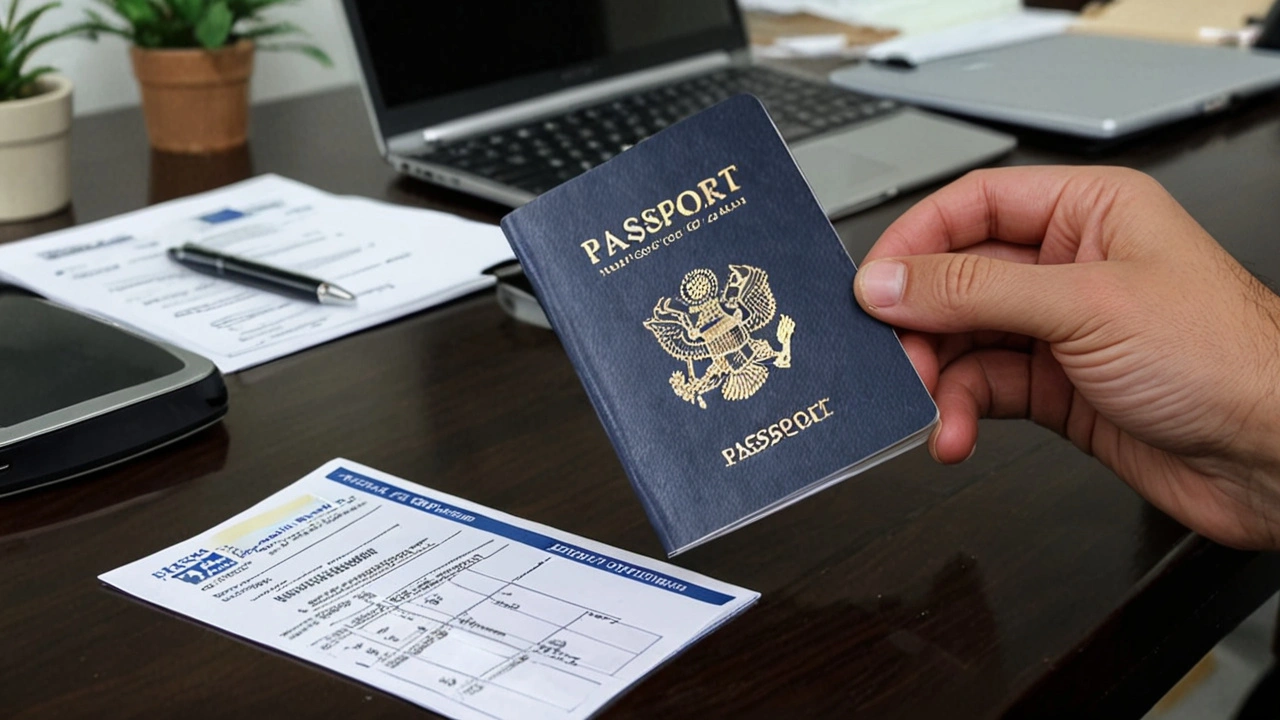UAE Visa Requirements for Nigerians: A Financial Hurdle
Nigerians aspiring to travel to the United Arab Emirates (UAE) are now met with formidable financial requirements. A recent report sheds light on the new conditions that must be satisfied for obtaining a UAE visa. Among these, maintaining a minimum bank balance of $10,000 and shouldering an application fee of N640,000 loom large as major obstacles for many.
Traveling for leisure, business, or to visit loved ones in the UAE has long been a goal for numerous Nigerians. The UAE, boasting impressive cities like Dubai and Abu Dhabi, is a popular destination due to its modern infrastructure, economic opportunities, and tourism appeal. However, the newly imposed visa requirements have cast a shadow over these aspirations.
Financial Requirements
The most notable financial prerequisite laid out for Nigerian visa applicants is maintaining a minimum bank balance of $10,000. This condition is particularly challenging for the average Nigerian, given the economic landscape of the country. According to the Central Bank of Nigeria, the average monthly income for many Nigerians falls significantly short of this benchmark. Accumulating such a substantial amount in savings represents a significant hurdle, creating concerns that only affluent individuals would be able to meet these criteria.
Furthermore, the visa application fee stands at N640,000, a significant expense considering the average earnings in Nigeria. This fee, which converts to roughly $1,500, does not encompass other costs associated with the visa process, such as medical examinations, additional documentation, and the actual visa fee. The total financial outlay thus becomes a daunting figure for potential travelers.

Impact on Nigerian Travelers
The stringent financial requirements place a heavy burden on Nigerians, impacting not just individual travelers but also businesses that require regular travel to the UAE for trade and corporate activities. The restrictions hinder the mobility of professionals, entrepreneurs, and even students who seek educational opportunities or internships in the UAE.
For families wishing to reunite with relatives in the UAE, these requirements can be heartbreaking. Many Nigerians have family members working in the UAE, and the prohibitive costs could mean extended periods of separation. The new regulations essentially limit travel to those who are financially privileged, leaving many unable to afford the journey.
Even before these stringent conditions, Nigerians faced challenges in securing visas for various reasons, including stringent checks and lengthy processing times. These new financial requirements add another layer of complexity and can potentially dissuade many from attempting to apply altogether.

The Broader Implications
The imposition of such rigorous financial criteria raises questions about the broader implications for Nigerian-UAE relations. Trade between the two nations has traditionally been robust, with Nigeria being a significant importer of goods from the UAE. Additionally, UAE's business-friendly environment attracts many Nigerian entrepreneurs and investors. These stringent visa conditions could inadvertently affect bilateral trade and economic relations, potentially prompting a flow of business interests to more accessible markets.
Moreover, there is a social aspect to consider. The UAE is home to a considerable Nigerian expatriate community who contribute to the local economy. Limiting access to the UAE for other Nigerians can affect the social fabric and support network of this expatriate community. It may also reduce the cultural exchange and diversity that diasporas bring to a country.

Possible Alternatives
Given these challenges, many Nigerians might start looking for alternative destinations that offer fewer financial and bureaucratic hurdles. Countries within Africa or other regions that have more lenient visa policies and requirements could see an uptick in travelers from Nigeria. Simultaneously, there could be increased pressure on the Nigerian government to negotiate more favorable visa terms with the UAE or to advocate for reduced financial requirements that are more inclusive.
In conclusion, the new visa requirements imposed by the UAE present considerable challenges for Nigerians. With a $10,000 bank balance requirement and an application fee of N640,000, many find these conditions insurmountable. This development calls for a closer look at the impacts on individuals, businesses, and broader bilateral relationships. It also raises the need for potential alternatives and solutions that can facilitate smoother travel arrangements while still ensuring adequate security and compliance measures.

14 Comments
Shritam Mohanty July 16 2024
This is just another way for the UAE to keep Nigerians under economic surveillance.
Anuj Panchal July 21 2024
The imposition of a $10,000 liquid asset threshold effectively restructures the migration cost curve, shifting the equilibrium towards high-net‑worth individuals. In macro‑policy terms, this creates a dual‑tiered access regime that may skew trade balances. Moreover, the N640,000 processing fee adds a fixed transactional friction that compounds the liquidity constraint. For SMEs relying on periodic UAE outreach, the fiscal outlay translates into a measurable opportunity cost. Ultimately, these parameters could induce a negative externality on bilateral commercial flows.
Prakashchander Bhatt July 26 2024
Hey folks, while the numbers look scary, there are still ways to make it work for those who really need the move. Saving up a bit each month and planning ahead can turn this hurdle into a goal. Keep your eyes on the prize and stay motivated – the UAE opportunities are still out there!
Mala Strahle July 31 2024
When one examines the broader sociopolitical tapestry that underlies such fiscal gatekeeping, it becomes apparent that the visa regime is not merely a bureaucratic hurdle but a manifestation of deeper structural asymmetries. The $10,000 balance requirement, in effect, stratifies the diaspora into those who can afford to traverse the geopolitical divide and those consigned to remain on the periphery. This bifurcation echoes historic patterns of mobility control, where economic capital substitutes for the more conventional notions of merit or skill. Moreover, the N640,000 fee-while ostensibly a revenue-generating mechanism-operates as a de facto tax on aspiration, especially when juxtaposed against median Nigerian earnings. The ripple effects cascade through familial networks: a single expatriate’s ability to remit funds, provide mentorship, or simply visit loved ones becomes contingent upon a financial calculus that many cannot satisfy. One might argue that the policy inadvertently fuels a brain drain, compelling those with the means to seek alternative, more permissive jurisdictions, thereby eroding the very talent pool the UAE hopes to attract. In addition, the psychological toll on prospective travelers cannot be ignored; the constant awareness of a monetary ceiling induces a chronic state of anxiety that permeates daily life. The cumulative impact, therefore, is not merely quantitative but deeply qualitative, reshaping identities, expectations, and the collective imagination of what cross‑border mobility entails. It is essential, then, to interrogate whether such policy aligns with the long‑term strategic interests of both nations, or if it merely serves short‑term fiscal objectives at the expense of human capital and cultural exchange.
Sally Sparrow August 5 2024
Honestly, these numbers are laughable. If the UAE thinks this will filter out the “unqualified,” they’ve missed the point completely. It’s a blatant intimidation tactic that favors the elite while marginalizing the middle class.
Eric Yee August 10 2024
From a cultural standpoint the fee seems excessive it undermines goodwill between community members and the host nation it's a real barrier
Sohila Sandher August 14 2024
Yo, I get the worry but try looking at it as a challenge not a wall. Saving up $10k is tough but doable if you cut coffe‑outlays and skip a few lux trips. Also consider group travel deals they sometimes drop. Just stay focused and keep the vibe positive!
Anthony Morgano August 19 2024
Totally feel you 😅! Small steps, big dreams. Keep grinding and you'll get there 😊
Holly B. August 24 2024
It is noteworthy that the imposed fees exceed average monthly incomes thereby presenting a substantial economic impediment
Lauren Markovic August 29 2024
Hey everyone! Just a heads‑up: some agencies offer bundled services that can shave off a few hundred dollars on the total cost. 👍 Don't forget to check for reputable reviews before you commit! 😊
Kathryn Susan Jenifer September 3 2024
Oh great, now I need a small fortune just to get a plane ticket. Because nothing says "welcome" like a financial gate that makes you feel like a broke celebrity in a bad sitcom.
Jordan Bowens September 8 2024
Yeah, more like a money trap. Not impressed.
Kimberly Hickam September 13 2024
Let me break this down for the crowd: the UAE's decision is not an isolated policy shift but part of a broader strategic move to curate a specific demographic profile among its inbound visitors. By setting a $10,000 liquid asset requirement, they effectively screen for individuals with substantial financial cushioning, which aligns with their vision of a high‑spending tourist base. The N640,000 fee, when converted, sits at roughly $1,500-an amount that outstrips the annual earnings of a significant portion of the Nigerian populace. This fiscal filter works doubly: it safeguards the host nation against potential fiscal liabilities while simultaneously signaling a preference for affluent entrants. Critics may label this as exclusionary, yet from a macro‑economic lens, it serves a protective function, preserving the nation's infrastructure and services from over‑utilization by lower‑income travelers. Moreover, this approach can be interpreted as a subtle lever to encourage remittances and investment flows from wealthier diaspora members, thereby bolstering the UAE’s long‑term economic interests. In sum, while the immediate perception is that of an onerous barrier, the underlying rationale is rooted in a calculated, albeit controversial, economic strategy.
Gift OLUWASANMI September 17 2024
Ah, the grand tapestry of geopolitical economics unfurls once more, where the UAE, draped in opulent ambition, orchestrates a symphony of fiscal exclusivity that only the sartorially endowed can truly appreciate. Such an elegant maneuver, indeed.